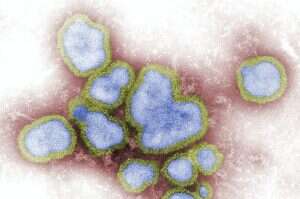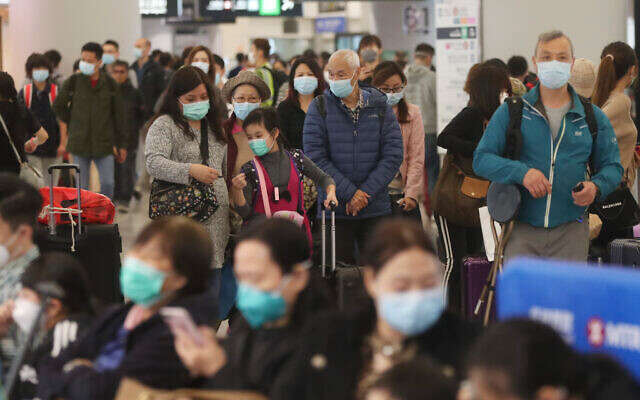The Health Ministry on Friday issued a travel advisory warning Israelis not to travel to the Chinese city of Wuhan and its surroundings, as the country struggles to deal with a new virus that has so far killed 55 people, infected thousands and seems to be spreading globally.
The Health Ministry urged Israelis to avoid all travel to the region unless it was "absolutely critical" and said it was "in contact with all the international bodies and experts in Israel and abroad. ... The public will be continuously updated on developments."
Follow Israel Hayom on Facebook and Twitter
Chinese health authorities have so far determined that the outbreak most likely started in a market in Wuhan, the sprawling capital of Central China's Hubei province.

The World Health Organization said that an animal source appears most likely to be the primary source of the outbreak.
Little known about the coronavirus, also known as 2019-nCoV, for which there is no known vaccine.
Coronaviruses are a group of viruses that have a halo, or crown-like (corona) appearance when viewed under a microscope.
These viruses are common among animals but in rare cases, they become what scientists call zoonotic, meaning they can be transmitted from animals to humans, according to the US Centers for Disease Control and Prevention.
The symptoms of most coronaviruses are similar to any other upper-respiratory infection, including runny nose, coughing, sore throat, and sometimes a fever.
There are a handful of human coronaviruses that are known to be deadly, among them the Middle East Respiratory Syndrome, also known as the MERS virus, and Severe Acute Respiratory Syndrome, or SARS,
SARS was also first identified in the Guangdong province in southern China, according to the WHO, and causes respiratory problems but can also cause diarrhea, fatigue, shortness of breath, respiratory distress and kidney failure. Depending on the patient's age, the death rate with SARS ranged from 0-50% of the cases, with older people being the most vulnerable.
The Wuhan coronavirus is currently thought to be milder than SARS and MERS and takes longer to develop symptoms.
The WHO has sent directives to hospitals around the world on infection prevention and control. It has also convened an emergency committee of experts on Jan. 22 to assess whether the outbreak constitutes an international emergency
So far, the World Health Organization has decided against declaring the outbreak a global emergency. The declaration can increase resources to fight a threat but its potential to cause economic damage makes the decision politically fraught.

China on Friday announced that it is swiftly building a 1,000-bed hospital dedicated to patients infected with the deadly virus.
As part of the efforts to contain the virus, transportation was shut down in Wuhan and 12 of its neighboring cities in central China's Hubei province, which together are home to more than 36 million people.
Train stations, the airport and subways were closed; entertainment venues were shuttered and the police checked incoming vehicles but did not entirely close off roads.
Authorities were taking precautions around the country as well: In Beijing, major public events were canceled, including traditional temple fairs that are a staple of Lunar New Year celebrations. Beijing's Forbidden City, Shanghai Disneyland and a slew of other tourist attractions have been closed indefinitely.




